The future of work in public organisations: From teleworking to hybrid working arrangements
Joint event by the People in Government Lab and the University of Chile
With the onset of the COVID-19 pandemic, governments have found strategies and designed policies to continue delivering public goods and services to citizens, while helping public employees to work from home and maintain their well-being and productivity.
For most governments, teleworking was emerging as a global trend before the COVID-19 pandemic. Nonetheless, social distancing and mobility restriction measures imposed remote work arrangements on public servants worldwide. Those flexible work formats will undoubtedly continue after the pandemic.
The purpose of this seminar is to bring together international scholars and senior executives to integrate research insights and experiences about hybrid working arrangements in the public sector. The discussion will centre on the learnings from emerging or previous teleworking strategies, and future challenges governments will face considering the transformation of the public service.
Please note: This is an online event via Zoom. It will also be livestreamed on our YouTube channel. Register below to receive joining instructions.
12:00 – 12:15 Opening remarks
12:15 – 13:00 Findings of the research project
Panel chair: Pedro Riccetto, Blavatnik School of Government
13:00 – 13:10 Break
13:10 – 14:10 Roundtable with civil service agencies
Panel Chair: Felipe Agüero, Deputy Director of the Institute of Public Affairs, University of Chile
14:10 – 14:20 Closing remarks
The People in Government Lab is a global, interdisciplinary research centre, focused on people and performance management in the public service. Our goal is to improve the motivation, responsiveness and effectiveness of people working in government, by bringing together scholars and practitioners to build and share the evidence base for a better government workforce.
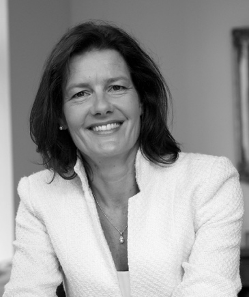 Ngaire Woods is the founding Dean of the Blavatnik School of Government and Professor of Global Economic Governance at Oxford University. Her research focuses on how to enhance the governance of organisations, the challenges of globalisation, global development, and the role of international institutions and global economic governance. She founded the Global Economic Governance Programme at Oxford University and co-founded (with Robert O. Keohane) the Oxford-Princeton Global Leaders Fellowship programme. She led the creation of the Blavatnik School of Government.
Ngaire Woods is the founding Dean of the Blavatnik School of Government and Professor of Global Economic Governance at Oxford University. Her research focuses on how to enhance the governance of organisations, the challenges of globalisation, global development, and the role of international institutions and global economic governance. She founded the Global Economic Governance Programme at Oxford University and co-founded (with Robert O. Keohane) the Oxford-Princeton Global Leaders Fellowship programme. She led the creation of the Blavatnik School of Government.
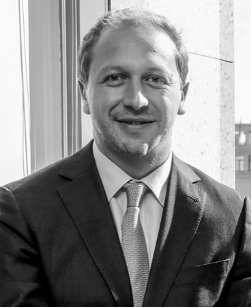 Alejandro Weber is the Undersecretary of Finance, Government of Chile. He also served as Director of the General Directorate of the Civil Service and President of the Senior Executive Service (SES) Council. Alejandro was a Professor at PUC-Chile´s Faculty of Law. He holds a BA in Organisational Psychology from PUC-Chile, a Master of Business Administration (MBA), and a Master of International Development Policy (MIDP) from Duke University.
Alejandro Weber is the Undersecretary of Finance, Government of Chile. He also served as Director of the General Directorate of the Civil Service and President of the Senior Executive Service (SES) Council. Alejandro was a Professor at PUC-Chile´s Faculty of Law. He holds a BA in Organisational Psychology from PUC-Chile, a Master of Business Administration (MBA), and a Master of International Development Policy (MIDP) from Duke University.
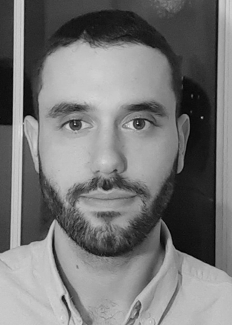 Pedro Arcain Ricceto is a Postdoctoral Fellow at the People in Government Lab, Blavatnik School of Government, and a Democracy Fellow at the Harvard Kennedy School of Government. As a practitioner, he has worked at the Ministry of Human Rights of Brazil, the UK Parliament, and holds the Victor Nunes Leal Chair at the Supreme Court of Brazil.
Pedro Arcain Ricceto is a Postdoctoral Fellow at the People in Government Lab, Blavatnik School of Government, and a Democracy Fellow at the Harvard Kennedy School of Government. As a practitioner, he has worked at the Ministry of Human Rights of Brazil, the UK Parliament, and holds the Victor Nunes Leal Chair at the Supreme Court of Brazil.
 Margarita Gómez is the Executive Director of the People in Government Lab at the Blavatnik School of Government, an innovation-in-government project aiming to improve people’s motivation, responsiveness, and effectiveness in the public sector. Margarita was a principal advisor to the Minister of Public Safety in Mexico and founded the first policy lab focused on applying behavioural sciences and experimental methods in Mexico at the National Public Policy Lab in the Centre for Research and Teaching in Economics.
Margarita Gómez is the Executive Director of the People in Government Lab at the Blavatnik School of Government, an innovation-in-government project aiming to improve people’s motivation, responsiveness, and effectiveness in the public sector. Margarita was a principal advisor to the Minister of Public Safety in Mexico and founded the first policy lab focused on applying behavioural sciences and experimental methods in Mexico at the National Public Policy Lab in the Centre for Research and Teaching in Economics.
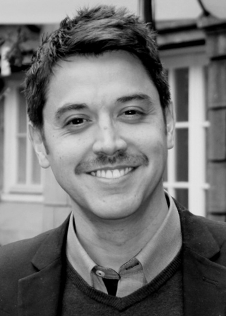 Javier Fuenzalida is a Postdoctoral Fellow at the People in Government Lab, Blavatnik School of Government. He is also Assistant Professor of Public Management and Policy at the University of Chile. The research projects Javier works on and leads regularly involve close collaboration with public agencies and international organisations such as the Inter-American Development Bank (IDB), the International Labour Organization (ILO) and UNICEF. Recent initiatives inquire into telework in the public sector, government occupations’ automation potential, and subnational governments’ management and finance.
Javier Fuenzalida is a Postdoctoral Fellow at the People in Government Lab, Blavatnik School of Government. He is also Assistant Professor of Public Management and Policy at the University of Chile. The research projects Javier works on and leads regularly involve close collaboration with public agencies and international organisations such as the Inter-American Development Bank (IDB), the International Labour Organization (ILO) and UNICEF. Recent initiatives inquire into telework in the public sector, government occupations’ automation potential, and subnational governments’ management and finance.
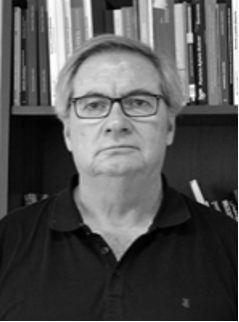 Felipe Agüero is the Deputy Director of the Institute of Public Affairs and Professor of Political Science at the University of Chile. He was the coordinator of the Ford Foundation Human Rights Programme, Andean Region and Southern Cone, between 2007-2015. He was an Associate Professor at the School of International Affairs, University of Miami, and Assistant and Associate Professor at the Department of Political Science, Ohio State University. He holds an MA and PhD in Political Science from Duke University.
Felipe Agüero is the Deputy Director of the Institute of Public Affairs and Professor of Political Science at the University of Chile. He was the coordinator of the Ford Foundation Human Rights Programme, Andean Region and Southern Cone, between 2007-2015. He was an Associate Professor at the School of International Affairs, University of Miami, and Assistant and Associate Professor at the Department of Political Science, Ohio State University. He holds an MA and PhD in Political Science from Duke University.
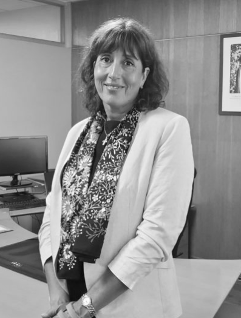 Solange Garreaud is the Director of the General Directorate of the Civil Service and President of the Senior Executive Service (SES) Council, Government of Chile. She is a commercial engineer graduated from the University of Santiago de Chile and has more than 20 years of experience working on people management in public and private organisations, both at the Chilean and international level. Previously, she was the Chief People Officer at the Ministry of Health of Chile.
Solange Garreaud is the Director of the General Directorate of the Civil Service and President of the Senior Executive Service (SES) Council, Government of Chile. She is a commercial engineer graduated from the University of Santiago de Chile and has more than 20 years of experience working on people management in public and private organisations, both at the Chilean and international level. Previously, she was the Chief People Officer at the Ministry of Health of Chile.
 Luana Faria is the founder and Head of LA-BORA! Gov, the Innovation and Human Capital Lab at the Ministry of Economy, Federal Government of Brazil. Luana works as the Coordinator-General at the Secretariat for People Management and Performance, Ministry of Economy. She holds a BA in Psychology and a Diploma in People, Innovation, and Results from the National School of Public Administration, Brazil.
Luana Faria is the founder and Head of LA-BORA! Gov, the Innovation and Human Capital Lab at the Ministry of Economy, Federal Government of Brazil. Luana works as the Coordinator-General at the Secretariat for People Management and Performance, Ministry of Economy. She holds a BA in Psychology and a Diploma in People, Innovation, and Results from the National School of Public Administration, Brazil.
 Sam Nutt is a Digital & Data Innovation Researcher at the London Office of Technology & Innovation (LOTI), United Kingdom. Sam leads LOTI´s research efforts across the full breadth of LOTI´s activities, ensuring the team and the London community have the best available information and evidence to inform collective work. Prior to joining LOTI, Sam was Public Sector Innovation Analyst at the Observatory of Public Sector Innovation, OCDE.
Sam Nutt is a Digital & Data Innovation Researcher at the London Office of Technology & Innovation (LOTI), United Kingdom. Sam leads LOTI´s research efforts across the full breadth of LOTI´s activities, ensuring the team and the London community have the best available information and evidence to inform collective work. Prior to joining LOTI, Sam was Public Sector Innovation Analyst at the Observatory of Public Sector Innovation, OCDE.
 Suzanne Semedo is the Head of Culture, Diversity & Wellbeing at Ofcom, UK. Previously, she was a Senior Fellow at the UK Civil Service People Lab, where she developed projects on hybrid working in partnership with the People in Government Lab at the Blavatnik School, University of Oxford. Suzanne has also been a Head of Corporate Race Equality and Head of Inclusive Services & Workplaces at the UK Ministry of Justice, Head of Civil Service Diversity & Inclusion Policy at the UK Cabinet Office, and Head of Diversity Consultancy at the UK Home Office.
Suzanne Semedo is the Head of Culture, Diversity & Wellbeing at Ofcom, UK. Previously, she was a Senior Fellow at the UK Civil Service People Lab, where she developed projects on hybrid working in partnership with the People in Government Lab at the Blavatnik School, University of Oxford. Suzanne has also been a Head of Corporate Race Equality and Head of Inclusive Services & Workplaces at the UK Ministry of Justice, Head of Civil Service Diversity & Inclusion Policy at the UK Cabinet Office, and Head of Diversity Consultancy at the UK Home Office.
 Richard Weber is the Director of the Industrial Engineering Department and Professor of Operations Research at the University of Chile. His areas of expertise are data mining, soft computing, and optimization. Richard holds a BA in Mathematics, an MSc and a PhD in Operations Investigation from RWTH Aachen University in Germany.
Richard Weber is the Director of the Industrial Engineering Department and Professor of Operations Research at the University of Chile. His areas of expertise are data mining, soft computing, and optimization. Richard holds a BA in Mathematics, an MSc and a PhD in Operations Investigation from RWTH Aachen University in Germany.
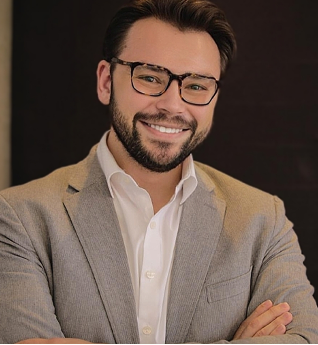 Diogo Costa is the President of the National School of Public Administration (ENAP), Federal Government of Brazil. Diogo was a researcher at the Cato Institute and Atlas Network, in Washington D.C., and a Professor of Political Science at IBMEC, Brazil. He holds an LLB from the Catholic University of Petropolis, an MA in Political Science from Columbia University, and is a PhD candidate in Political Economy at King’s College London. He has published in a wide range of journals and newspapers, including Forbes, Newsweek and The Wall Street Journal.
Diogo Costa is the President of the National School of Public Administration (ENAP), Federal Government of Brazil. Diogo was a researcher at the Cato Institute and Atlas Network, in Washington D.C., and a Professor of Political Science at IBMEC, Brazil. He holds an LLB from the Catholic University of Petropolis, an MA in Political Science from Columbia University, and is a PhD candidate in Political Economy at King’s College London. He has published in a wide range of journals and newspapers, including Forbes, Newsweek and The Wall Street Journal.
 Timmy Cheung is the Senior People Data and Insights Leads at Ofcom UK. Before joining the public sector, Timmy spent years working in the private sector as a Global Employee Insights at Unilever, a Senior HR Manager at Mercer, as well as held positions at Restrata, CEB's Talent Management Solutions, and Great Place to Work. Timmy holds a BA in Psychology from the University of Winchester and an MSc. in Occupational and Organisational Psychology from the University of Surrey.
Timmy Cheung is the Senior People Data and Insights Leads at Ofcom UK. Before joining the public sector, Timmy spent years working in the private sector as a Global Employee Insights at Unilever, a Senior HR Manager at Mercer, as well as held positions at Restrata, CEB's Talent Management Solutions, and Great Place to Work. Timmy holds a BA in Psychology from the University of Winchester and an MSc. in Occupational and Organisational Psychology from the University of Surrey.